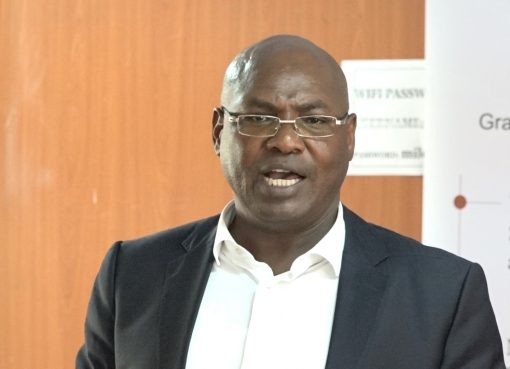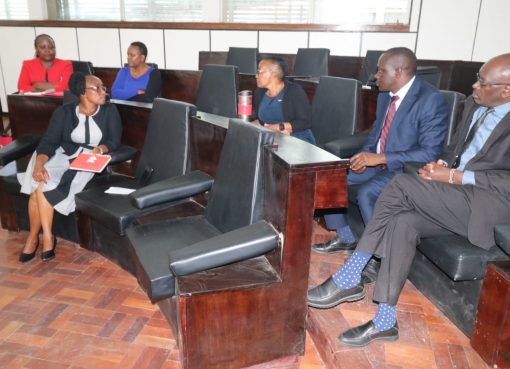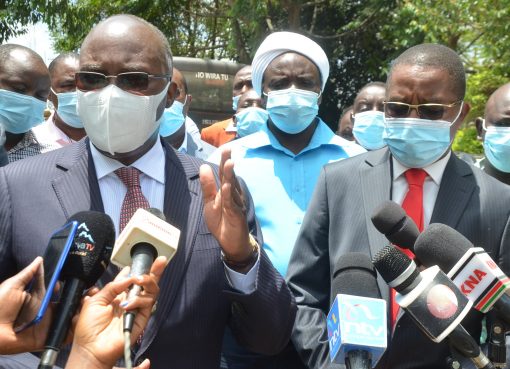The National Multiagency Command Centre on Covid-19 (NMACC) has directed the formation of a Risk Communication and Community Engagement (RCCE) at the County level to address and guide all Covid-19 communication to the public in a bid to demystify cultural issues that hamper the uptake of Covid-19 messages.
Mr John Marete the team leader in NMACC said that the RCCE groups with necessary knowledge and sensitivity skills will guide the identification of cultural communication issues and other issues that hamper communication strategies and methods being used to convey messages that would aid in the understanding of messages hence help in curbing spread of the pandemic.
Mr Marete who paid a courtesy call on the Kericho County Commissioner (CC), Mr Karungo Kamau encouraged counties across the Country who have not formed the Risks Communication and Community Engagement teams to do so to steer and stem communications that disrupts the smooth dissemination of messages to the target audience at the local levels.
“The objectives of the RCCE include provision of RCCE teams with necessary knowledge and sensitivity skills to identify and report back on important information that can be used to guide the communication response from the people.
Marete cited unverified rumours, identification of vulnerable and at-risk groups, detecting barriers to desired behavior changes, misinterpretations of messages, traditional or cultural barriers that hinder the adoption of desired behaviours.
He encouraged the County teams to be formed to set up systems that would track down and verify if the messages and interventions on the disease are reaching the vulnerable groups.
Mr Marete called for initiation of a coordination forum, online and email platforms to facilitate the sharing of information and timely dissemination of data and other related Covid-19 information.
He said that the teams will also conduct surveys to identify vaccine hesitant populations and the drivers of their reluctance at the County level, in order to tailor targeted interventions, aiming at increasing vaccine acceptance and ultimately immunization rates.
RCCE will be tasked with identification of health promotion professionals at the County level who are trained in Risk Communication and called upon to design and implement Risk Communication strategies.
It will be tasked with rapid clearance of timely, clear and transparent communication messaging and communication materials. It will also identify community opinion leaders, religious leaders, health workers and any existing network like women groups, social mobilizers in the fight against diseases at the County level.
“RCCE will detect and quickly respond to misunderstandings, misinformation, rumours, frequently asked questions, monitor media coverage, social media and how to counter negative messages,” Mr Marete added.
By Dominic Cheres





